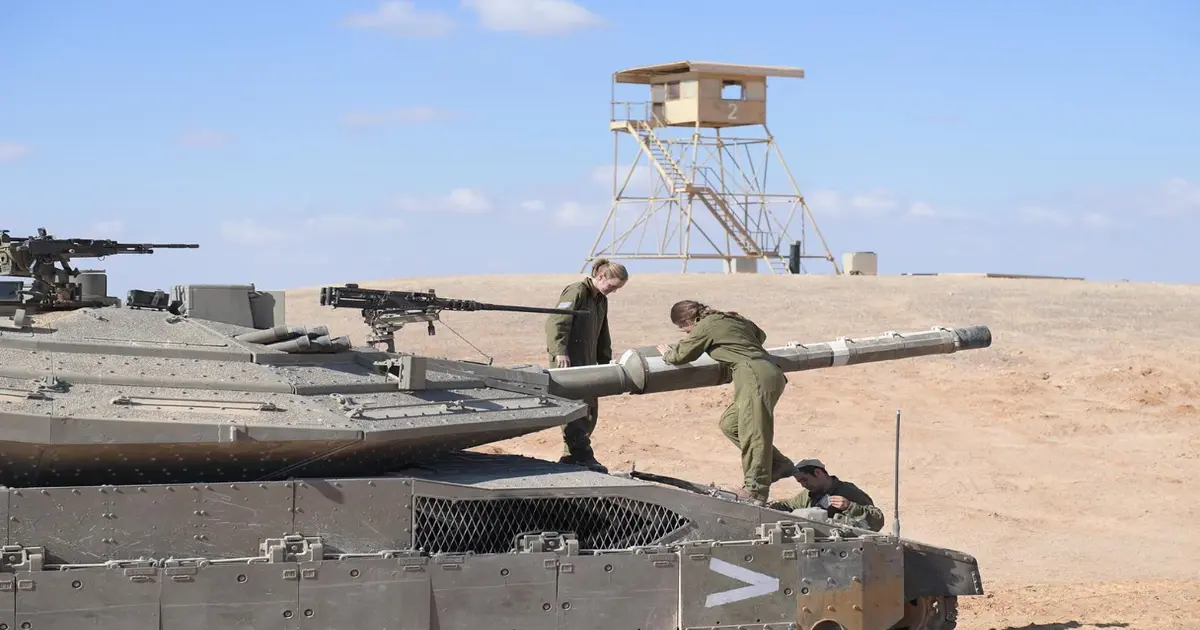IDF TANK Force Image Credit-x.com/FIDF
Following a barrage of over 200 ballistic missiles launched by Iran, the Israel Defense Forces (IDF) are preparing for a significant retaliatory strike. The military has confirmed that the attack from Iran targeted several locations in Israel, though many were intercepted by Israel’s advanced defense systems. With operations currently active on seven fronts—including Gaza, Lebanon, Syria, and Iraq—the IDF’s response is being carefully strategized to minimize risks while maximizing the impact on Iranian military infrastructure.
The conflict between Israel and Iran is increasingly seen as a direct one, rather than a proxy war, as Iran continues to actively engage across multiple regions. Despite the ongoing battle, the IDF remains focused on thwarting future missile attacks and arms smuggling from Iran to Hezbollah, one of its most formidable enemies in the region.
Strikes on Iran and Hezbollah Targets
The IDF is set to target Iranian military installations, specifically those connected to weapons shipments intended for Hezbollah. While the full scale of the response has not been detailed, reports suggest that IDF airstrikes have already begun targeting Hezbollah positions in Lebanon, particularly those with stockpiles of Kornet missiles. Furthermore, Israeli forces have dismantled key Hezbollah infrastructure, killing an estimated 400 Hezbollah operatives since the beginning of the conflict.
In Beirut, Israeli strikes have inflicted heavy damage on Hezbollah’s command centers and weapons depots in the southern suburb of Dahieh. The IDF’s focus remains on preventing Hezbollah from re-establishing a foothold along Israel’s northern border.
Lebanon Operations: Targeting Hezbollah Commanders
As part of its broader effort, the IDF continues conducting raids in southern Lebanon to eliminate Hezbollah commanders and dismantle their infrastructure. Military operations are being carefully coordinated to ensure Israel’s strategic objectives are met, especially in key battleground areas like Har Dov and Markaba. These efforts include preventing the transfer of arms from Syria to Lebanon, with constant drone surveillance and airstrikes on suspected supply routes.
The destruction of tunnels along the Philadelphi corridor, crucial for smuggling weapons, is also ongoing. The IDF is committed to preventing Hezbollah’s resurgence post-conflict, signaling potential long-term changes in Lebanon’s security landscape.
Fighting in Gaza and the West Bank Intensifies
While dealing with Hezbollah and Iranian forces, Israel continues to engage in fierce battles in Gaza, particularly in Rafah and along the Philadelphi corridor. In parallel, IDF efforts in the West Bank have ramped up, including a major counterterrorism operation in Tulkarm, where a large-scale plot was thwarted. IAF fighter jets have been deployed, and reserve battalions have reinforced the region to prevent future attacks.
International Collaboration and Defense Strategy
The IDF is working closely with international allies, particularly the United States, to combat Iranian aggression. With growing international awareness of the threats posed by Hezbollah and Hamas, Israel’s allies are expected to support its military objectives, both diplomatically and through shared intelligence. The Western world has reaffirmed its commitment to assisting Israel in eliminating threats emanating from Lebanon, Gaza, and Iran, stressing the importance of curbing Iranian influence in the region.
Read Also- Missiles Launched by Iran at Israel Amid Escalating Conflict: is World War 3 started?
FAQs About the Israel-Iran Conflict
Q: What started the recent escalation between Israel and Iran?
A: Tensions escalated after Iran launched more than 200 ballistic missiles at Israel, prompting the IDF to prepare for a retaliatory strike.
Q: Why is Hezbollah involved in this conflict?
A: Hezbollah, backed by Iran, is actively involved in the conflict, using weapons supplied by Iran to target Israeli positions in Lebanon and along its northern border.
Q: What is Israel doing to counter Iran’s missile attacks?
A: The IDF is focusing on striking Iranian military installations, particularly those connected to arms smuggling and missile production. Israeli defense systems have intercepted many of the Iranian missiles, and retaliation plans are being formulated.
Q: How is the West supporting Israel in this conflict?
A: The United States and other Western allies are expected to collaborate with Israel, providing diplomatic backing and potentially offering military and intelligence support against Iranian aggression.
Q: What are the broader implications of this conflict?
A: The conflict could reshape the security landscape in the Middle East, particularly in Lebanon, where Hezbollah’s influence may be significantly diminished if Israel’s operations succeed. There are concerns that the conflict could widen, drawing in more regional actors.

1 thought on “IDF Prepares ‘Significant’ Strike Amid Growing Middle East Tensions: World War 3 in Progres”